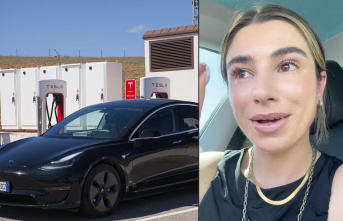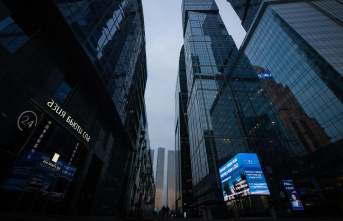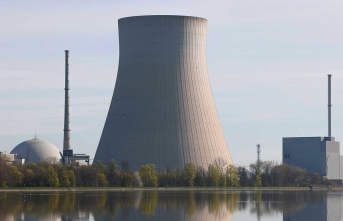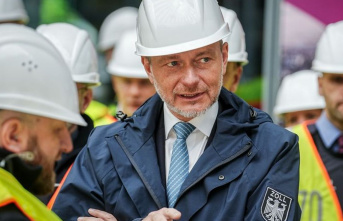Does the Economics Minister not know what bankruptcy is? Does he even know what he's doing? Numerous malicious comments about Habeck's failed explanatory appearance on the ARD program "Maischberger" went in this direction. Now one of Germany's most prominent economists jumps to his side: Marcel Fratzscher, head of the German Institute for Economic Research (DIW), explained via Twitter: "I don't understand the criticism of Minister of Economics Habeck's statements about bankruptcies, because they are correct."
Habeck had caused irritation in his TV appearance on Tuesday evening with statements about bankruptcies and company closures. When asked if he feared a wave of bankruptcies in winter, he explained: "No, I don't. I can imagine that certain sectors will simply stop producing for the time being," but that does not mean that the companies affected will also become insolvent will. He fears that businesses such as flower shops, health food stores or bakeries will have problems because their costs are rising and there is a reluctance to buy. But: "Then they are not automatically insolvent, but they may stop selling."
For the statement that companies might have to close down without going bankrupt, Habeck earned ridicule and incomprehension, especially since he rhetorically stumbled powerfully in his statements. DIW boss Fratzscher, on the other hand, points to two concrete examples in which companies actually "cannot produce without necessarily becoming insolvent".
On the one hand, he refers to the hospitality industry: "Some hotels will have to close in winter because there are no customers", because people are traveling less and because costs have risen massively, writes Fratzscher. Temporary closures are not uncommon in the industry.
Should there be a gas shortage, "a number of energy-intensive companies could also be forced to stop production," explains Fratzscher. But: “The state will only be able to do this if it sufficiently compensates the companies so that they can open again in the future.”
Even if Fratzscher cites other examples than the Economics Minister in his unfavorably printed statements about bakers and flower shops, he comes to the conclusion: "What Habeck said about Maischberger is therefore correct. One could only criticize the fact that he did not talk about the state measures , which apply in such cases. But it is rather prudent not to do so in this current uncertainty."
In fact, Habeck also mentioned in his TV appearance that the government was working on "support programs that help companies". It is still unclear whether there could be extensive financial aid like in the Corona lockdown times. At least the government is currently working on changes in insolvency law. However, these discussion points were lost in Habeck's awkward appearance and the subsequent wave of malice.
You can read more about the background to Habeck's statements and possible changes to insolvency law here:








